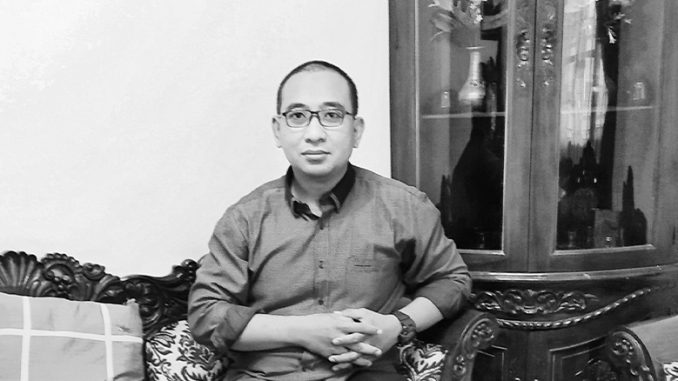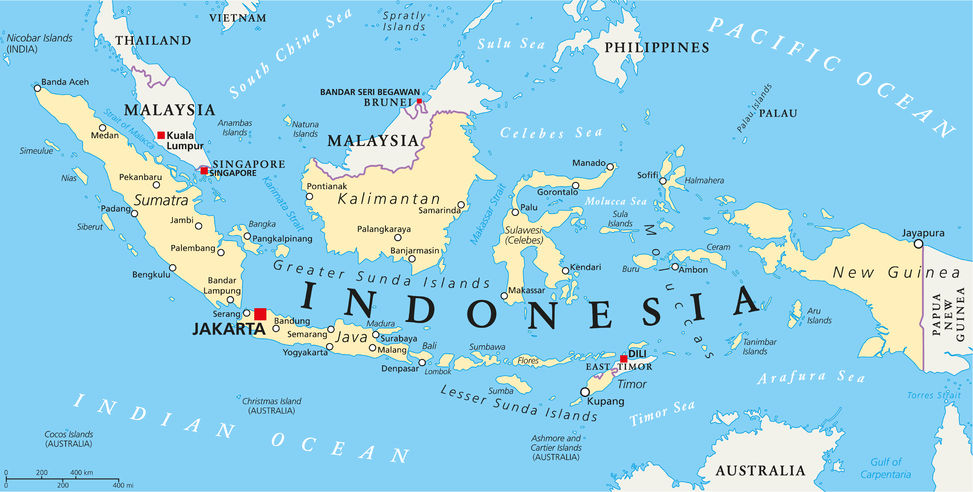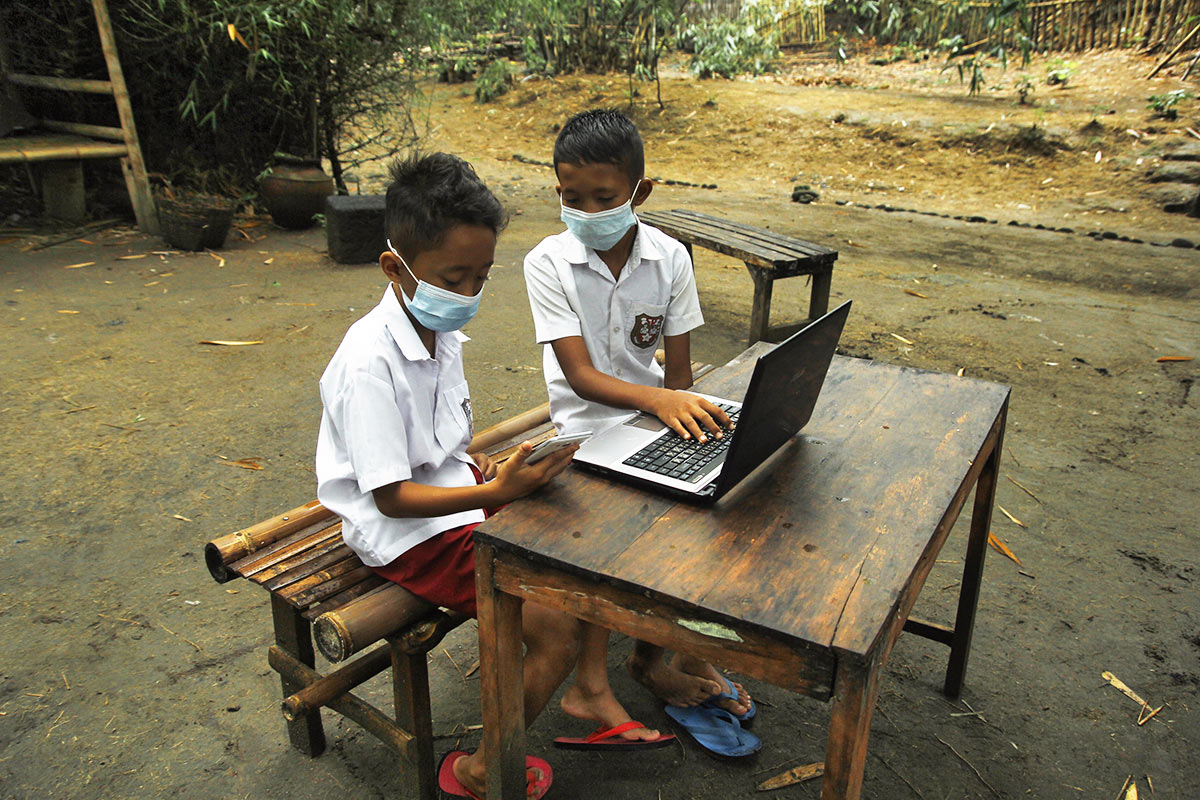
I hesitated before submitting this paper to the Kyoto Review of Southeast Asia as many writings similar to mine had already been published. However, this paper is different in that it re-presents the dynamics of education from a different – Indonesian – perspective during the current pandemic at the primary school level. There is sometimes a belief that primary education is relatively straightforward, but in reality when formal education takes place at home it is quite difficult for parents to implement.
Since February 2020 Indonesia has felt the impact of COVID-19 as various aspects of life have been affected, none more so than the education sector. Various educational institutions were closed to contain the spread of COVID-19, and this impacted millions of students throughout Indonesia as classes were replaced by learning at home. Meanwhile, the process had a psychological impact on students and parents, as assignments had to be submitted daily in the home setting and parents needed to start monitoring their children’s work.

Teachers are to be appreciated for having stepped up to the challenge. The transmission of knowledge to students is not easy in the midst of the current pandemic, with the perspective having changed to the home becoming a classroom and parents becoming teachers. However, the situation was unanticipated and should not discourage us from learning. Knowledge still needs to be pursued and imparted, even with physical distancing.
Ultimately, this pandemic could end up changing perspectives and culture. Before the pandemic, learning took place regularly in the classroom; but now it is largely online. Several schools are constantly planning to facilitate and organize learning from home. On the other hand, there are some that are constrained by not being able to offer online learning. Another obstacle, faced by private schools, is that teachers’ salaries always have to be paid, and therefore they have to charge fees to all students – although at some schools fees are reduced. Another aspect that needs to be considered is that synergy between parents and the school is a determinant of learning success. Parents play a strategic role not only as facilitators and mediators but also as motivators in continuing to foster enthusiasm for learning among their children.
Stress seems to be a problem faced by students and teachers in implementing the current learning model. It begins with the unfamiliarity of online learning. The Internet infrastructure in Indonesia is uneven, so it is not always adequate for online learning, especially in the Disadvantaged, Leading, and Outer Areas or remote areas feel heavy. Apart from Internet access, online learning requires smartphones and laptops, which not all students or parents have. At this time both devices seem to be primary needs and are among the most sought after items. On the other hand, because these items are expensive, people in Disadvantaged, Leading, and Outer Areas cannot afford them, which creates its own problems.
Electronic devices such as smartphones and laptops have given students and parents a wide space for virtual knowledge transmission. On the other hand, this process has resulted in knowledge inequalities and weaker social relationships. Daily assignments are given by the teacher while referring to books that have been given to students. After working on the assignment, students take photos of their work and send them to the teacher via WhatsApp and Google Classroom. Many students complain about such a learning model.
Conversely, if the teacher has a good grasp of information technology, they can simply assign a quiz or question and students can submit the answers directly to them. It becomes a problem if the parent does not understand information technology but the assignment is sent through the parent’s gadget. The issue is complicated by the fact that students often play online games or watch YouTube videos on their devices, so learning opportunities just disappear. In such a situation students feel more relaxed staying home than going to school and having to pay attention to the teacher.
Online learning does not involve only assignments done from home. It also requires virtual meetings between students and teachers. If assignments are given continuously, and parents are busy working outside the home, parents cannot provide adequate support for the fast-paced learning. Parents feel stressed when they see their children overburdened, and the quality of learning at home is thus neglected. The pandemic has exposed the fragility of our education system. Online learning should be an enjoyable and worthwhile experience. Of course, for a start the work that teachers are doing in Indonesia during the pandemic must be respected. In the future, all education organizers should be forced to be innovative and creative in realizing a learning model that prioritizes quality in terms of both knowledge and educational technology.
Quality online learning depends upon various infrastructure for humans and computers to be interconnected. This connection is not an easy task, but it needs to be established. In addition to online learning, which involves simply submitting assignments via WhatsApp or Google Classroom, there is computer-supported collaborative learning, 1 in which computers are used to support teachers; teachers and computers collaborate to facilitate effective and efficient learning.

Although online learning is currently being implemented, some people are getting less access to it than others due to the inequality of Internet accessibility in various regions of Indonesia. For those who have unlimited access to the Internet, online classes provide benefits and the momentum becomes a means to intensify learning at home. However, not everyone likes learning at home, and this can add to parents’ hassles. COVID-19 has changed the school culture. Schools have moved away from traditional pedagogy, 2 where children are taught only through textbooks, to a system that is less than optimal. With this pandemic, teachers have the opportunity to be catalysts for a better-quality education. The knowledge authority has moved to a different space; virtual space has been delegated as the single authority replacing traditional classrooms. 3
Another aspect that deserves attention is the possibility of drafting an emergent curriculum to be implemented under special conditions. During the current pandemic, education stakeholders are faced with curricula that do not accommodate the needs of teachers and students. 4 Disparities in information technology among schools have made gaps in education even wider. Technology can make learning easier, but some people are unable to use it at home. 5 Ideally, learning during the pandemic should be made easier. The government must make innovations that let people enjoy getting an education.
Online learning is still a subject of intense discussion among education experts, who continue to look into its effectiveness. Although it provides an alternative solution during the pandemic, going forward, the government needs to come up with a model that provides the same quality of education as face-to-face interaction. 6 The current situation has demonstrated the importance of prioritizing a curriculum that anticipates disaster situations such as the current pandemic. It is hoped that Indonesia will be better prepared for such crises in the future. 7 The pandemic requires all parties to think of education as a life investment and a valuable competitive asset for the survival of future generations. 8
The pandemic has revealed a striking disparity among schools. This educational disparity stems from some schools’ lack of a well-organized model to manage the situation. The transformation of education can be successful if it is supported by an appropriate curriculum that anticipates disaster situations. The Ministry of Education must design many digital applications of microsystems, ranging from learning and assessment to teacher training, including school management, both online and offline. The current educational ecosystem, with educational roles overlapping between parents and teachers, is not sustainable. Parents feel stressed educating their children at home, and teachers have difficulty monitoring students’ progress. E-pedagogy enables the best quality of education that can be imparted through file transfers but does not enable a transfer of knowledge. 9 It causes students to feel stressed and overburdened since they receive assignments daily; this makes gaps in knowledge even wider. This will become a burden in the future, when the current generation is less competitive in terms of the advancement of science and civilization. 10
For some students and parents, online learning is a relief since final exams have been abolished; thus, there is no question of failing a grade and repeating a year. In that respect, education has been made easier for students. On the other hand, the quality of education is questionable. Some education experts are questioning how the quality of graduates can be assessed if there is no final exam. “Impoverishing education” (poor education), to adopt a term from Darmaningtyas, has created a new Internet-based culture that does not value life or humanity. Education during the pandemic is oriented toward capitalism and has lost its essence. Knowledge is transmitted into an empty space, neglecting the inculcation of character in students. 11 Meanwhile, the government of Indonesia, represented by the Ministry of Education and Culture, has said that if the pandemic lasts until the end of 2020, each province and district will have different education policies depending on the disease’s speed of transmission. 12 Perhaps some areas will be classified as green zones and be allowed to conduct face-to-face learning with the requirement to strictly adhere to health protocols. Of course, if this is implemented there will be many aspects to be considered, since the first priority is to save the lives of students, teachers, and education personnel. Stakeholders must have a strong sense of responsibility and leadership to serve the educational needs of the community (servant leadership style). The central and local governments must work together to create a system of education that can be accessed by all levels of society.
The government must reflect on learning during this pandemic in a wider context. The development of information technology makes several things easier, including education. During the current pandemic the use of technology is indispensable. On the other hand, technology is only as good as the user’s knowledge of it. Many parents and students do not have enough knowledge of technology to make full use of it, and therein lies the weakness of online learning. Of course, we must hope that in the future the infrastructure for online learning or distance learning will be better than it is now. It is not only the government but all Indonesians who must play a role in realizing inclusive, transformative, and adaptive learning that aims to advance the younger generation so they can be competitive at the global level. 13
Lukis Alam
Dr. Lukis Alam is a researcher, lecturer, and public intellectual at the National Institute of Technology, Yogyakarta (ITNY). He completed his doctorate at the Sunan Kalijaga State Islamic University, in 2019. He has been involved in collaborative research and academic presentations with several institutions such as at the University of Gottingen (Germany), NUS (the National University of Singapore), Mahidol University (Thailand), Ateneo de Manila University (Manila), and IIUM (International Islamic University Malaysia). His interests are Islamic Interdisciplinary Studies, Education, and Cultural Studies.
Notes:
- Stahl, G., Koschmann, T., & Suthers, D. (2006). Computer-Supported Collaborative Learning: An Historical Perspective. In Cambridge Handbook of the Learning Sciences, edited R.K. Sawyer, pp. 409–426. Cambridge: Cambridge University Press. ↩
- Garnham, W., Betts, T., Oprandi, P., Ashell, W., Kirby, J., Steinberg, M., Taylor, H., Walden, V., & Wilkinson, R. (2019). Disrupting Traditional Pedagogy: Active Learning in Practice. University of Sussex. https://doi.org/10.20919/9780995786240. See also Suchodolski, B. (1962). Education for the Future and Traditional Pedagogy. International Review of Education 7: 420–431. https://doi.org/10.1007/BF01421347. ↩
- Bonk, R., Kefalaki, M., Jurgen, R., Diamantidaki, Fotini; Rekar, M. C., Karanicolas, S., Kontoleon, P., & Pogner, K.-H. (2020). Pedagogy in the Time of Pandemic: From Localisation to Glocalisation. Journal of Education, Innovation, and Communication. https://doi.org/10.34097/jeicom_SP_june2020_1. ↩
- Srivastava, Tripti. 2019. Competency-Based Curriculum: Need & Implications. Journal of Education Technology in Health Sciences 6(1): 1. https://doi.org/10.18231/j.jeths.2019.001. ↩
- Lobashev, V., & Talykh, A. 2020. Framework Approach in Technology Education. Vestnik of Minin University 8(2). https://doi.org/10.26795/2307-1281-2020-8-2-2. ↩
- Marshall, C., Yamada, S., & Inada, M. (2008). Using Problem-Based Learning for Pandemic Preparedness. Kaohsiung Journal of Medical Sciences 24(3): S39–S45. https://doi.org/10.1016/S1607-551X(08)70093-7. ↩
- Tarrant, P. (2018). A Practical Guide to Using Storyline across the Curriculum: Inspiring Learning with Passion. Abingdon and New York: Routledge. https://doi.org/10.4324/9781351055666-3. ↩
- Ranjan, V. (2014). Education Curriculum of Learning in Children. 1st International Conference on Education, Psychology and Social Science (ICEPSS) 2014. SSRN. http://dx.doi.org/10.2139/ssrn.3061002. ↩
- Hayes, D., Christie, P., Mills, M., & Lingard, B. (2020). Teachers and Schooling Make a Difference: Productive Pedagogies, Assessment and Performance. Sydney: Allen & Unwin. http://doi.org/10.4324/9781003117643-2. ↩
- Dharaskar, R., & Thakare, V. M. (2004). E-Pedagogy: The Heart of Today’s E-Learning. International Conference on ICT (Information Communication Technology) in Education & Development ’04, December 2004, AISECT Bhopal. https://www.researchgate.net/publication/324161596_E-Pedagogy_The_Heart_of_Today’s_E-Learning, accessed November 27, 2020. ↩
- Darmaningtyas. (2004). Pendidikan yang memiskinkan [Impoverishing education (poor education)]. Malang: Intrans Publishing. ↩
- Kompas. (2020). Kemendikbud Terbitkan Kurikulum Darurat [Ministry of Education issues emergency curriculum]. August 27. https://www.kompas.com/tren/read/2020/08/27/094000765/kemendikbud-terbitkan-kurikulum-darurat-ini-link-untuk-mengaksesnya?page=all, accessed August 29, 2020. ↩
- Herţanu, C.-L. (2020). Future Education within Disruptive Technologies Developments. International Conference Knowledge-Based Organization 26(2): 288–293. https://doi.org/10.2478/kbo-2020-0092. ↩

